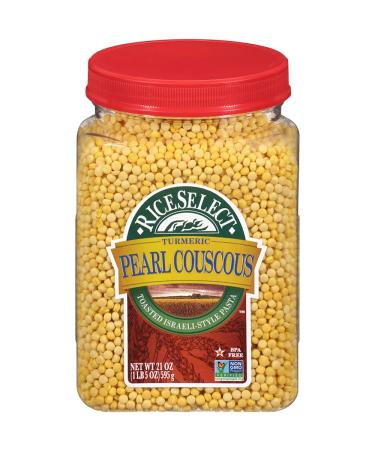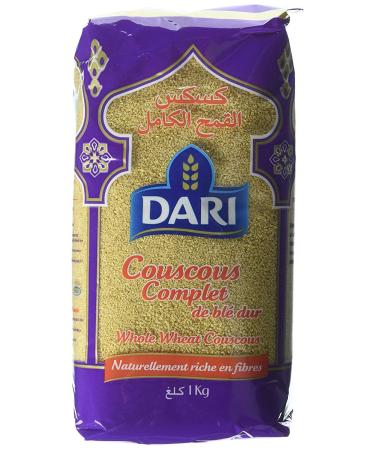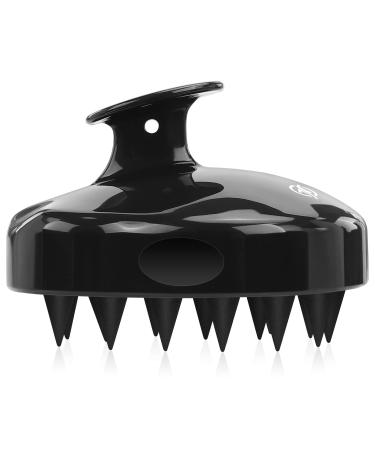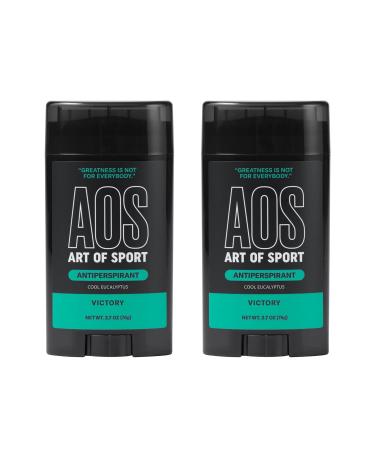Despite this food being a staple for many neighboring nations, couscous meals vary greatly in some countries.
- Savory couscous: Algerian and Moroccan. Both the Algerians and Moroccans usually consume couscous with a meat and vegetable stew served on top. Rarely, this delicacy is served as dessert. In this case, it's sprinkled with almonds and honey. Hot couscous: Tunisian. While the people of Tunisia can serve couscous with anything, including squid and octopus, they almost always season it with a hot harissa sauce. Here this dish can be served every day as people enjoy it greatly. Israeli couscous. In Israel couscous is a delicacy served on special occasions. It's mostly used as a savory dish with vegetables and meat. This country also has its own special variety of it, called Israeli or pearled couscous, which is a type of toasted pasta. Mediterranean couscous variations. The Mediterranean cuisine often allows for couscous to be a substitute for rice or other grains. The dishes are mostly savory and involve lots of vegetables and sometimes meat. These recipes usually involve rich, spicy seasonings.
Some of the traditional ways to serve this dish include: Savory couscous: Algerian and Moroccan.
- Hot couscous: Tunisian. While the people of Tunisia can serve couscous with anything, including squid and octopus, they almost always season it with a hot harissa sauce. Here this dish can be served every day as people enjoy it greatly. Israeli couscous. In Israel couscous is a delicacy served on special occasions. It's mostly used as a savory dish with vegetables and meat. This country also has its own special variety of it, called Israeli or pearled couscous, which is a type of toasted pasta. Mediterranean couscous variations. The Mediterranean cuisine often allows for couscous to be a substitute for rice or other grains. The dishes are mostly savory and involve lots of vegetables and sometimes meat. These recipes usually involve rich, spicy seasonings.
Both the Algerians and Moroccans usually consume couscous with a meat and vegetable stew served on top. Rarely, this delicacy is served as dessert. In this case, it's sprinkled with almonds and honey. Hot couscous: Tunisian.
- Israeli couscous. In Israel couscous is a delicacy served on special occasions. It's mostly used as a savory dish with vegetables and meat. This country also has its own special variety of it, called Israeli or pearled couscous, which is a type of toasted pasta. Mediterranean couscous variations. The Mediterranean cuisine often allows for couscous to be a substitute for rice or other grains. The dishes are mostly savory and involve lots of vegetables and sometimes meat. These recipes usually involve rich, spicy seasonings.
While the people of Tunisia can serve couscous with anything, including squid and octopus, they almost always season it with a hot harissa sauce. Here this dish can be served every day as people enjoy it greatly. Israeli couscous.
- Mediterranean couscous variations. The Mediterranean cuisine often allows for couscous to be a substitute for rice or other grains. The dishes are mostly savory and involve lots of vegetables and sometimes meat. These recipes usually involve rich, spicy seasonings.
In Israel couscous is a delicacy served on special occasions. It's mostly used as a savory dish with vegetables and meat. This country also has its own special variety of it, called Israeli or pearled couscous, which is a type of toasted pasta. Mediterranean couscous variations.
Couscous ingredients vary greatly from culture to culture as it goes amazingly well with any topping. Sweet couscous recipes are very simple as the food is cooked in plain water. People usually flavor these dishes with honey and sprinkle them with nuts and dried fruits. Couscous desserts are served with milk.
Couscous Cooking and Storage Tips
Food To Live Organic Couscous keeps for months if stored in a dark dry place. Keep it in an airtight container to prevent damage from moisture. There is no need to store this type of dry goods in the fridge, so just leave it in your pantry. In fact, you can keep the organic couscous bulk package in one of the kitchen cupboards.
- Always cook your organic couscous in a broth instead of water. You can forego this advice when making a sweet couscous dessert. However, in this case, you can flavor the water with anise, cinnamon, or some other spices. Couscous soaks up the flavors while cooking, so it'll be more delicious when the liquid infusing it has some flavor of its own. Fluff your couscous really well. Giving it a few stirs with a fork will result in a clumpy mass instead of proper couscous. The best way to do it is to break down the cooked mass by hand fluffing it thoroughly. Put the couscous onto a baking sheet lined with a kitchen towel to do this well. Serve when still warm. At the very least, you should serve room-temperature couscous as it gets clumpy when cold. This will make the texture of the dish unpleasant and will prevent it from soaking up seasoning well. Limit the use of liquid seasonings. Don't drench your organic couscous in vinaigrette as this will ruin its fluffy texture and make the taste too strong. This food is a bit bland by default, which is why it makes such a great side. However, it soaks up flavors extremely well because of this, so there would be no saving your couscous dish if you add too much seasoning.
As you can store organic couscous for years, you'll have enough time to experiment with various recipes. However, there are some tricks that will help you make this dish more delicious regardless of the exact recipe. Always cook your organic couscous in a broth instead of water.
- Fluff your couscous really well. Giving it a few stirs with a fork will result in a clumpy mass instead of proper couscous. The best way to do it is to break down the cooked mass by hand fluffing it thoroughly. Put the couscous onto a baking sheet lined with a kitchen towel to do this well. Serve when still warm. At the very least, you should serve room-temperature couscous as it gets clumpy when cold. This will make the texture of the dish unpleasant and will prevent it from soaking up seasoning well. Limit the use of liquid seasonings. Don't drench your organic couscous in vinaigrette as this will ruin its fluffy texture and make the taste too strong. This food is a bit bland by default, which is why it makes such a great side. However, it soaks up flavors extremely well because of this, so there would be no saving your couscous dish if you add too much seasoning.
You can forego this advice when making a sweet couscous dessert. However, in this case, you can flavor the water with anise, cinnamon, or some other spices. Couscous soaks up the flavors while cooking, so it'll be more delicious when the liquid infusing it has some flavor of its own. Fluff your couscous really well.
- Serve when still warm. At the very least, you should serve room-temperature couscous as it gets clumpy when cold. This will make the texture of the dish unpleasant and will prevent it from soaking up seasoning well. Limit the use of liquid seasonings. Don't drench your organic couscous in vinaigrette as this will ruin its fluffy texture and make the taste too strong. This food is a bit bland by default, which is why it makes such a great side. However, it soaks up flavors extremely well because of this, so there would be no saving your couscous dish if you add too much seasoning.
Giving it a few stirs with a fork will result in a clumpy mass instead of proper couscous. The best way to do it is to break down the cooked mass by hand fluffing it thoroughly. Put the couscous onto a baking sheet lined with a kitchen towel to do this well. Serve when still warm.
- Limit the use of liquid seasonings. Don't drench your organic couscous in vinaigrette as this will ruin its fluffy texture and make the taste too strong. This food is a bit bland by default, which is why it makes such a great side. However, it soaks up flavors extremely well because of this, so there would be no saving your couscous dish if you add too much seasoning.
At the very least, you should serve room-temperature couscous as it gets clumpy when cold. This will make the texture of the dish unpleasant and will prevent it from soaking up seasoning well. Limit the use of liquid seasonings.
You can pre-cook your organic couscous for the ease of cooking on workdays. It can be stored for up to a week in the fridge if you put it in an airtight container.










![Stewart Freeze Dried Dog Treats Made in USA [Single Ingredient Puppy and Dog Training Treats - Grain Free Natural Dog Treats] Resealable Tub to Preserve Freshness](https://www.gosupps.com/media/catalog/product/cache/25/small_image/375x450/9df78eab33525d08d6e5fb8d27136e95/6/1/61gwbbixarl._ac_sl1500_.jpg)







